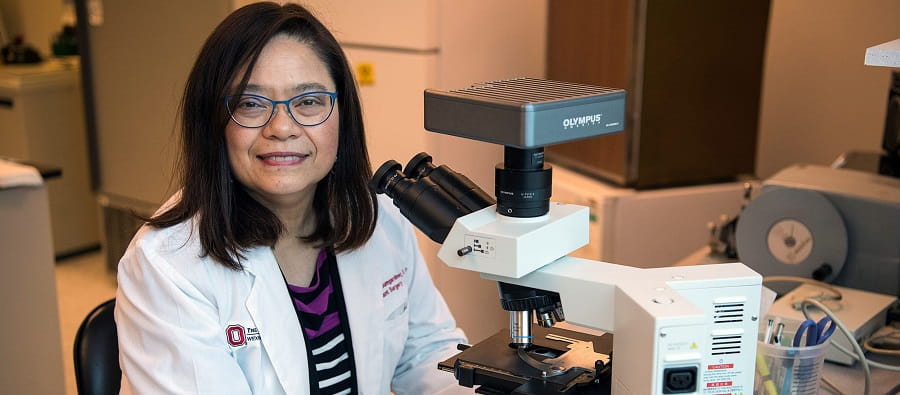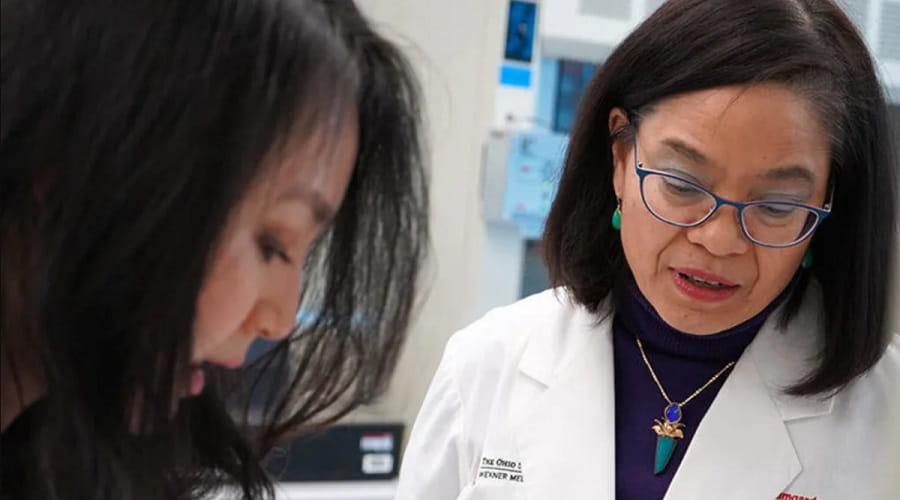At the Ohio State University College of Medicine, researchers have uncovered an immune cell that may predict a transplant patient’s risk of developing antibodies that can cause organ rejection. This discovery could lead to the development of future therapies to prevent complications after transplant surgery.

With the support from the Immunology of Cell Transplantation Fund, Ginny Bumgardner, MD, PhD and her lab can continue their breakthrough research and change the outcome of organ and cell transplant.
The goals of the Bumgardner Transplant Immunology Laboratory are to investigate adaptive and innate immune responses to both cellular and solid organ transplants to spearhead development of novel immunotherapies, which will prolong transplant allograft survival.
Donor-specific antibodies (DSA) can cause immediate damage to the transplanted organ, known as acute rejection, or over time can lead to chronic organ rejection,” said Dr. Bumgardner. “The CD8+ T immune cell subset we discovered has the capacity to reduce antibody production in transplant recipients.”
Dr. Bumgardner is looking ahead at the new discoveries her lab can accomplish and is optimistic on how it can improve lives.

Future research will focus on strategies to monitor recipient CD8+T cells to predict the risk of developing DSA so doctors can identify patients who could benefit from higher target levels of immunosuppression to prevent the development of DSA, or more frequent monitoring for DSA to diagnose acute organ rejection early on. The research team is also exploring using CD8+ T cells to create treatment options before and after surgery.
With more than 110,000 Americans waiting for a transplant, this research may help increase the number of first time transplant surgeries by reducing the number of recipients who experience acute rejection of their transplanted organ and need for a second transplant surgery.
“We could potentially use these cells as a therapy to do two things,” Dr. Bumgardner explained. “One to prevent antibody development in the first place, antibodies that are directed against the donor organ. And second, for patients who do develop antibody mediated rejection, we may be able to use the cells as a therapy to suppress ongoing antibody production and stop the rejection.”
How you can help
Donate Online
Make a gift onlineDonate by Mail
The Wexner Medical Center Development Officec/o The Ohio State University Foundation
P.O. Box 736096
Chicago, IL 60673-6096
